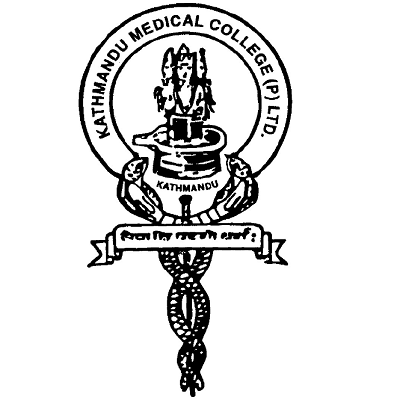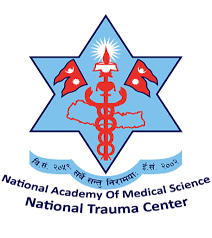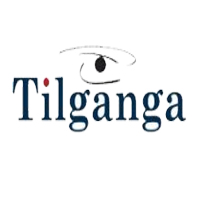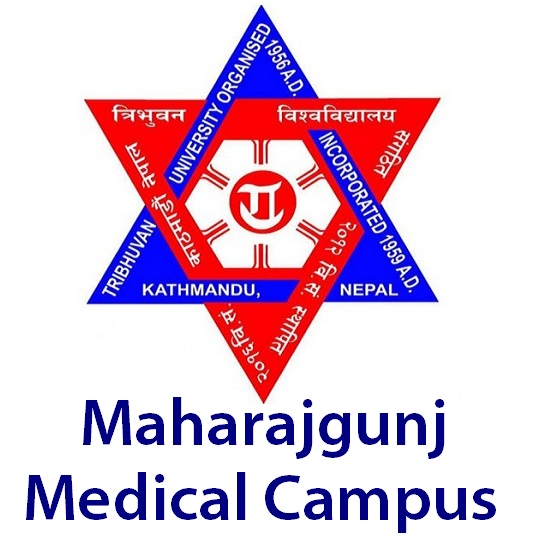Overview
MD Clinical Pharmacology at Nepalese Army Institute of Health Sciences (NAIHS) College of Medicine
MD Clinical Pharmacology at Nepalese Army Institute of Health Sciences (NAIHS) College of Medicine is a three-year postgraduate medical degree that prepares you for advanced work in rational use of medicines, clinical research, and drug safety. The program runs under the affiliation of Tribhuvan University, Institute of Medicine (TU-IOM), and follows the national curriculum and regulations approved by the Medical Education Commission (MEC) and Nepal Medical Council (NMC).
The Department of Pharmacology at NAIHS was established in 2011 as one of the basic medical science departments and has gradually expanded its teaching and postgraduate training activities. The department teaches pharmacology to undergraduate students in MBBS, BNS, BSc Nursing, BSc MLT, and BPH, and runs the MD Clinical Pharmacology program in line with the TU-IOM curriculum.
For Nepali and international students who wish to build a career as specialist clinical pharmacologists, the program offers structured training that links classroom learning, hospital-based practice at Shree Birendra Hospital, and formal research. It focuses on safe prescribing, evaluation of drug therapy, and the scientific basis of medicines used in hospitals and community settings.
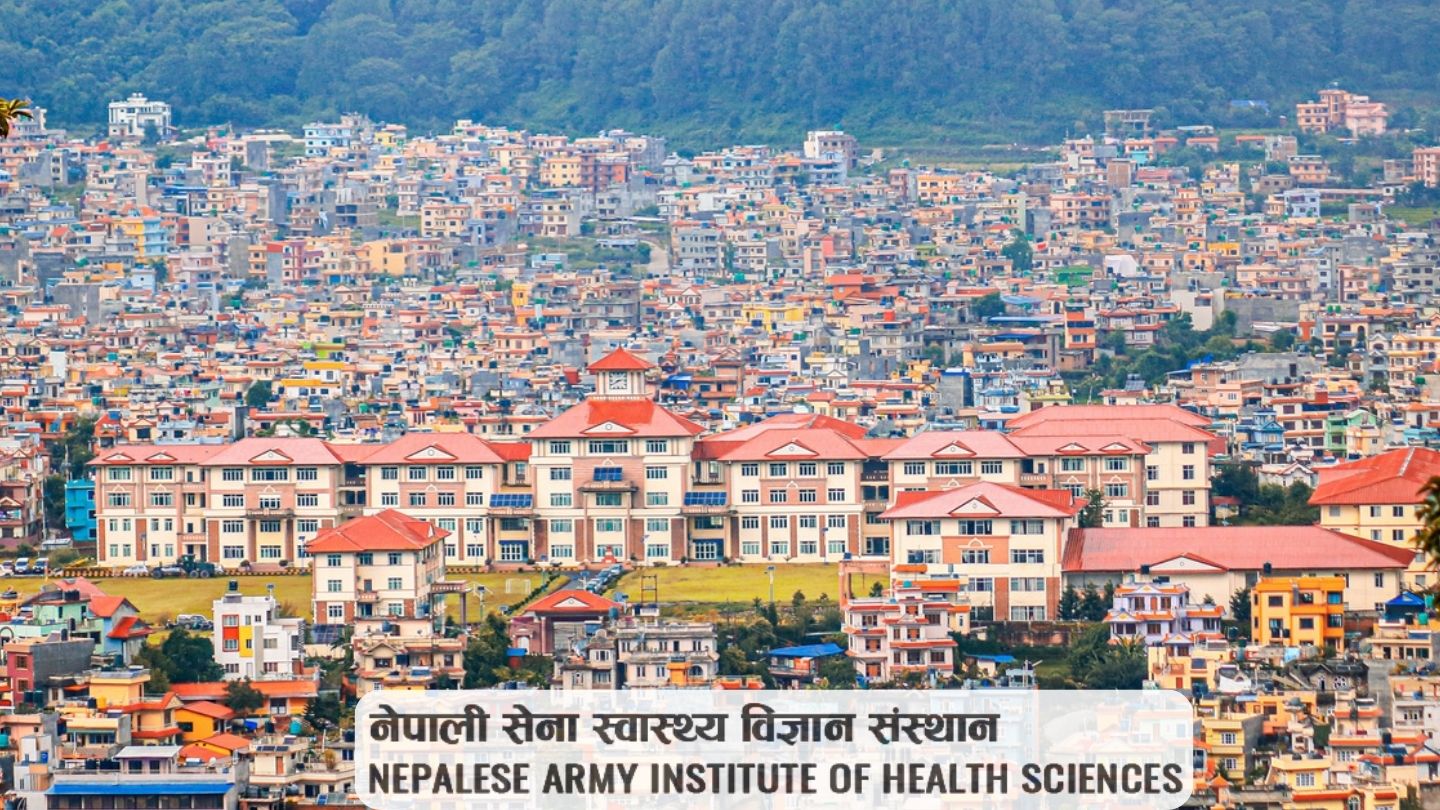
Highlights
-
Course name: MD Clinical Pharmacology
-
Institution: Nepalese Army Institute of Health Sciences (NAIHS) – College of Medicine, Kathmandu
-
Affiliation: Tribhuvan University, Institute of Medicine (TU-IOM)
-
Regulatory bodies: Medical Education Commission (MEC), Nepal Medical Council (NMC)
-
Duration: 3 academic years (residency-type program)
-
Intake capacity: 2 residents per year (as per current seat distribution shared by the college)
-
Approximate total fee: NPR 1,085,870 (subject to periodic revision by NAIHS/MEC)
-
Training base: Department of Pharmacology and Shree Birendra Hospital, Chhauni
-
Program nature: Full-time residential postgraduate training
Curriculum Details
The MD Clinical Pharmacology curriculum at NAIHS follows the TU-IOM structure for postgraduate pharmacology, adapted to local health system needs. It brings together advanced pharmacology, clinical exposure, and research skills over three years.
Key academic areas include:
-
Advanced general pharmacology and system-based pharmacology
-
Clinical pharmacokinetics and pharmacodynamics
-
Therapeutics in major specialties such as internal medicine, paediatrics, obstetrics and gynaecology, psychiatry, dermatology, and surgery
-
Pharmacovigilance and adverse drug reaction monitoring
-
Drug utilization studies and pharmaco-epidemiology
-
Principles of clinical trials and research ethics
-
Biostatistics relevant to clinical pharmacology research
-
Rational prescribing and essential medicines concepts
-
Pharmacogenetics and individualized therapy (as covered in the TU-IOM curriculum)
Teaching and learning activities usually combine:
-
Formal lectures and seminars
-
Case-based discussions on real clinical scenarios
-
Ward-based clinical pharmacology rounds with other clinical departments
-
Journal clubs that review current literature
-
Thesis work under departmental supervision, as required for MD/MS programs under NMC regulations
Residents also contribute to undergraduate teaching in pharmacology and therapeutics, which strengthens their academic and communication skills.
Objectives
The goals of the MD Clinical Pharmacology program at NAIHS are aligned with the department’s stated objectives and national regulatory expectations.
Major objectives include:
-
Prepare specialists who understand the actions, uses, and safety profile of medicines at an advanced level.
-
Build competence in integrating pharmacology with clinical practice to support rational, evidence-based therapy in hospitals and community settings.
-
Develop academic leaders who can teach pharmacology and therapeutics to medical, nursing, and allied health students.
-
Strengthen capacity for clinical pharmacology research, including clinical trials, observational studies, and pharmacovigilance.
-
Support national efforts in safe and rational use of medicines through drug information services, guideline development, and collaboration with hospitals and regulatory bodies.
Scope
The need for trained clinical pharmacologists in Nepal continues to grow as the health system handles increasing numbers of patients, polypharmacy, and complex drug regimens. MEC and NMC place strong focus on quality medical education and safe practice, which gives MD Clinical Pharmacology a clear role in teaching hospitals and policy-level work.
After this program, graduates may:
-
Work as clinical pharmacologists in tertiary hospitals, military hospitals, and medical colleges
-
Guide drug selection and usage in hospital drug and therapeutics committees
-
Lead or support pharmacovigilance centers and drug information services
-
Contribute to policy discussions related to essential medicines and rational prescribing
-
Move into academic positions in basic medical sciences and clinical departments
-
Collaborate with research institutions on clinical trials and drug development projects
For students who want to remain in Nepal, MD Clinical Pharmacology offers long-term career prospects in teaching, research, and clinical governance. Those who plan to work abroad must check country-specific recognition and licensing rules, as requirements differ across regions.
Learning Outcomes
By the end of the three-year MD Clinical Pharmacology program at NAIHS, successful residents are expected to:
-
Understand mechanisms, therapeutic uses, and adverse effects of commonly used and specialized drugs.
-
Evaluate drug therapy for complex cases and suggest rational alternatives based on evidence and patient factors.
-
Interpret pharmacokinetic parameters and therapeutic drug monitoring reports where such services exist.
-
Identify, assess, and report adverse drug reactions using national pharmacovigilance tools.
-
Plan and conduct clinical pharmacology research, including protocol writing, ethical clearance, data analysis, and scientific reporting.
-
Teach pharmacology and therapeutics effectively to undergraduate and postgraduate learners.
-
Provide structured drug information services to clinicians, nurses, and other professionals.
-
Participate in development or revision of hospital drug lists, treatment guidelines, and standard treatment protocols.
Skill Development Modules
During the course, students gradually build a mix of clinical, analytical, and teaching skills. NAIHS links these skills with real hospital activities and departmental tasks.
Key skill areas include:
-
Clinical skills
-
Participating in multidisciplinary ward rounds to discuss drug therapy
-
Reviewing prescriptions for rationality, interactions, and dosing
-
Contributing to case conferences on complex pharmacotherapy
-
-
Pharmacovigilance and drug safety
-
Detecting and documenting adverse drug reactions
-
Preparing ADR reports for relevant pharmacovigilance units
-
Analysing drug use patterns within the hospital
-
-
Drug information and hospital pharmacy interface
-
Responding to drug information queries from clinicians and nurses
-
Contributing to the “Charaka-NAIHS – Drugs and Therapeutics bulletin” and similar materials
-
Supporting development of hospital formularies and treatment guidelines
-
-
Research and statistics
-
Applying basic biostatistics in clinical pharmacology projects
-
Writing research papers, case series, or audits for publication
-
Presenting findings in departmental and institutional forums
-
-
Teaching and academic skills
-
Conducting tutorials, seminars, and practical sessions for undergraduate students
-
Preparing teaching materials and assessment questions
-
Participating in problem-based learning (PBL) and correlation seminars
-
Teaching Methodology
The Department of Pharmacology at NAIHS uses a variety of learning methods, many of which are shared between undergraduate teaching and MD residency.
For MD Clinical Pharmacology, common approaches include:
-
Interactive teaching sessions
-
Seminars, lectures, and tutorials on advanced topics
-
Case-based and problem-based learning linked to real patient scenarios
-
-
Clinical postings and collaborative teaching
-
Rotations in key clinical departments to observe and discuss drug therapy
-
Joint sessions with internal medicine, paediatrics, orthopaedics, and other units that receive pharmacology support
-
-
Self-directed and group learning
-
Structured reading assignments and protocol review
-
Journal clubs that help students critically appraise recent research
-
-
Assessment and feedback
-
Periodic tests, viva examinations, and assessment of clinical logs
-
Evaluation of teaching performance and research progress
-
The department has dedicated faculty rooms, a practical hall that can accommodate up to 50 students, a demonstration hall, a museum-cum drug information center, and a research laboratory, all of which support academic and clinical learning activities.
Admission Requirements
Admission to MD Clinical Pharmacology at NAIHS takes place through the national process governed by the Medical Education Commission (MEC). NAIHS follows MEC and TU-IOM rules for eligibility and selection.
Typical eligibility for MD/MS programs in Nepal includes:
-
MBBS degree from a recognized university (such as TU-IOM or another MEC-approved university)
-
Completion of compulsory rotating internship
-
Valid registration with the Nepal Medical Council or relevant medical council
-
Successful performance in the MECEE-PG (Medical Education Commission Entrance Examination – Postgraduate)
-
Seat matching and admission according to MEC’s online matching system and published notices
For MD Clinical Pharmacology at NAIHS specifically:
-
Seats are limited (currently 2), so admission is competitive.
-
Applicants must meet all MEC, NMC, and TU-IOM requirements applicable at the time of admission.
-
International candidates should carefully review current MEC eligibility rules, including any document verification or equivalence procedures.
Because national regulations and seat allocations can change, you should always refer to the latest MEC and NAIHS notices for final details before applying.
Career Opportunities
Graduates of MD Clinical Pharmacology from NAIHS may pursue several roles within Nepal and, after fulfilling relevant licensing requirements, abroad:
-
Clinical pharmacologist in teaching hospitals and tertiary care centers
-
Faculty member in departments of pharmacology and clinical disciplines
-
Member or coordinator of hospital drug and therapeutics committees
-
Contributor to pharmacovigilance programs and national ADR monitoring centers
-
Researcher in clinical trials, pharmaco-epidemiology, or health systems research
-
Advisor or technical expert for government, NGOs, or regulatory agencies dealing with medicines policy
The combination of clinical exposure at Shree Birendra Hospital and structured academic work at the Department of Pharmacology helps graduates move into positions where they can influence prescribing quality and medicine-related safety.
Scholarships and Financial Aid
Postgraduate medical education in Nepal uses a mix of scholarship and paying seats managed through the Medical Education Commission. MEC conducts a central entrance exam and allocates scholarship positions across universities and institutions, including TU-affiliated colleges such as NAIHS, according to national rules and categories.
For MD Clinical Pharmacology at NAIHS:
-
Some seats in postgraduate programs across Nepal are reserved for scholarship candidates through MEC.
-
The exact number of scholarship seats, including any category-wise distribution, is decided year-by-year by MEC and published in its official notices.
-
Service candidates (for example, from government services or security forces) may have separate provisions, depending on current regulations and institutional policies.
Because scholarship rules change, you should monitor the MEC website and NAIHS notices in each admission cycle for the most accurate and updated information.
Why Choose MD Clinical Pharmacology at NAIHS?
From the institution’s perspective, MD Clinical Pharmacology at NAIHS offers several academic strengths backed by documented departmental activity:
-
The program is rooted in a department that teaches multiple undergraduate courses and runs a dedicated MD program, which creates a strong academic environment.
-
Small intake size (2 seats) allows close supervision, mentoring, and active participation in departmental work.
-
Residents gain experience in PBL and integrated teaching, which is useful for future teaching careers.
-
Teaching-learning activities are supported by dedicated labs, demonstration halls, a drug information center, and a departmental research lab.
-
Publication of the “Charaka-NAIHS – Drugs and Therapeutics bulletin” provides a platform to engage in drug information services and academic writing.
If you are interested in combining patient care discussions, rational pharmacotherapy, and medical education, this course offers a structured route to that kind of work within Nepal’s health system.
Conclusion
MD Clinical Pharmacology at NAIHS College of Medicine is a focused postgraduate program for doctors who want to specialize in medicines and their clinical use. It brings together advanced pharmacology teaching, ward-based learning, and research within a recognized TU-IOM and MEC framework. For Nepali students and international candidates seeking a career that links clinical practice, teaching, and drug policy, this program presents a clear and structured pathway.
Frequently Asked Questions (FAQ)
1. What is the duration of MD Clinical Pharmacology at NAIHS?
The program runs for three academic years as a full-time postgraduate residency under Tribhuvan University, Institute of Medicine.
2. How many seats are available for MD Clinical Pharmacology?
Current information indicates 2 seats per intake at NAIHS College of Medicine. Seat numbers can change according to MEC and NMC approvals, so you should confirm with the latest official notices before applying.
3. What is the approximate fee for this program?
The fee structure shared for MD Clinical Pharmacology at NAIHS is around NPR 1,085,870 for the full course, subject to revision. Candidates should always check the most recent NAIHS fee notice when planning their finances.
4. What are the basic eligibility criteria?
You need an MBBS degree from a recognized university, completion of compulsory internship, valid registration with the Nepal Medical Council, and a qualifying score in the MECEE-PG entrance examination conducted by MEC, followed by seat matching and institutional admission procedures.
5. Where does clinical training take place?
Clinical and bedside-related teaching occurs mainly at Shree Birendra Hospital and associated units of NAIHS, where residents participate in ward rounds, case discussions, and pharmacotherapy review in collaboration with clinical departments.
6. Is the degree recognized for practice and teaching in Nepal?
NAIHS is a TU-affiliated medical college recognized by the Nepal Medical Council, and postgraduate programs follow national postgraduate education regulations. Graduates who meet NMC and MEC requirements can work as specialists and faculty within Nepal.


